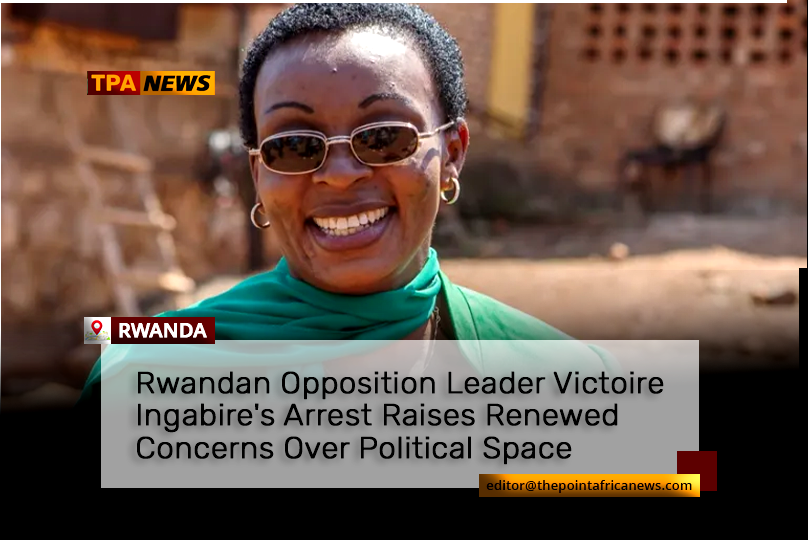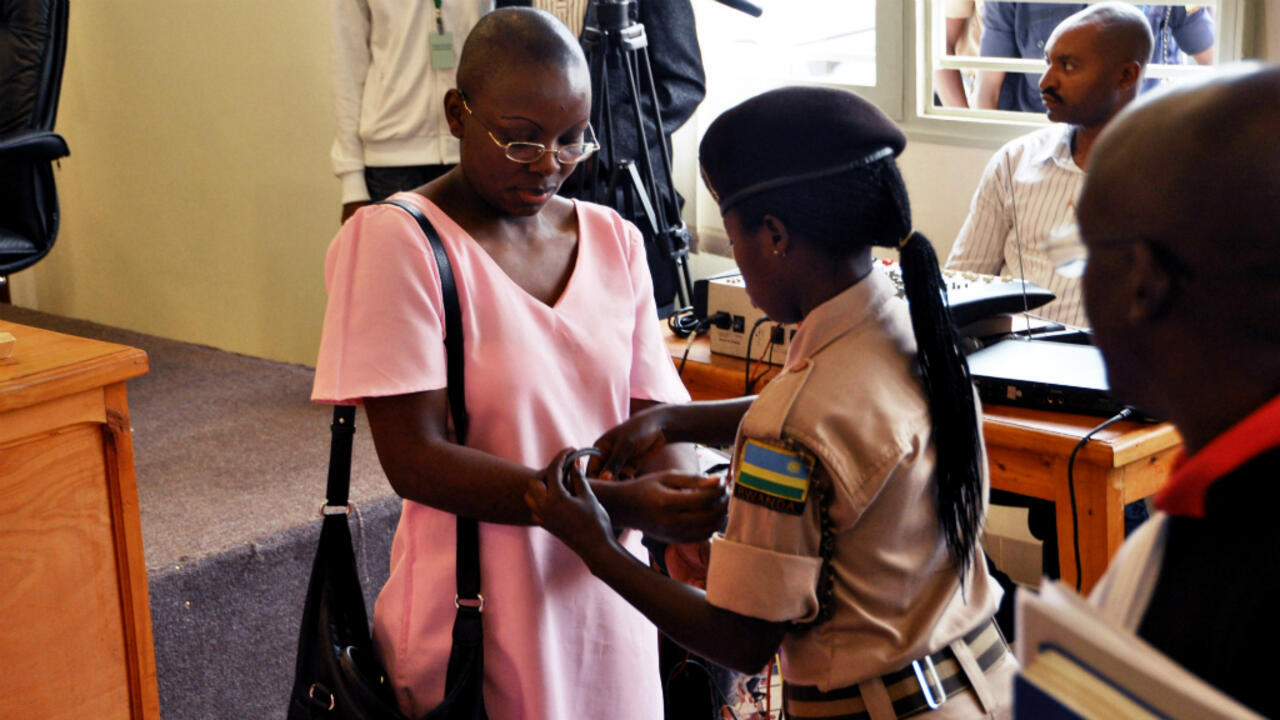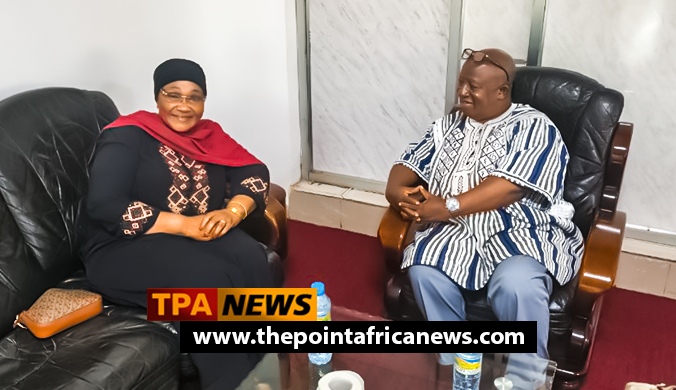By: TPA News Desk | editor@thepointafricanews.com

In a development that has immediately reignited long-standing concerns over political freedoms in Rwanda, prominent opposition figure Victoire Ingabire was arrested overnight by the Rwanda Investigation Bureau (RIB). The charges, “creating a criminal organization and inciting the public against the leadership,” resonate deeply within a country where critical voices frequently face severe legal repercussions.
Ingabire’s detention comes hot on the heels of her questioning in a Kigali court just yesterday, linked to a trial involving nine individuals accused of attempting to overthrow the government by non-violent means. While she vehemently denied any involvement in those alleged activities, insisting her party, DALFA-Umurinzi, “has never organised, conducted or funded any such a training,” the RIB has swiftly moved to implicate her.
This latest arrest is not an isolated incident but rather a deeply familiar pattern in Ingabire’s struggle for political space in Rwanda. She previously spent eight years in prison after a 2012 conviction on charges that included publicly questioning the official narrative of the 1994 genocide – charges consistently condemned by human rights organizations as politically motivated and designed to silence dissent. Although she was granted a presidential commutation in 2018, leading to her release, the underlying issues that led to her initial imprisonment, including a ban on her standing for election, were never fully resolved. Her recent unsuccessful bid to overturn this electoral ban further highlighted the constraints on opposition activity.
Critics of President Paul Kagame’s administration often point to such arrests as evidence of an “iron-fisted rule” that leaves little room for genuine political pluralism. The broad and often vaguely defined nature of charges like “inciting the public” or “genocide ideology” has long been a flashpoint for international human rights groups, who argue they are weaponized to quash legitimate political expression.
Ingabire’s continued targeting sends a chilling message to any potential opposition, underscoring the formidable challenges faced by those who dare to challenge the established order in Rwanda. As the international community observes these developments, questions about the health of Rwanda’s democracy and its commitment to fundamental freedoms will undoubtedly resurface with renewed urgency.








Leave a Reply